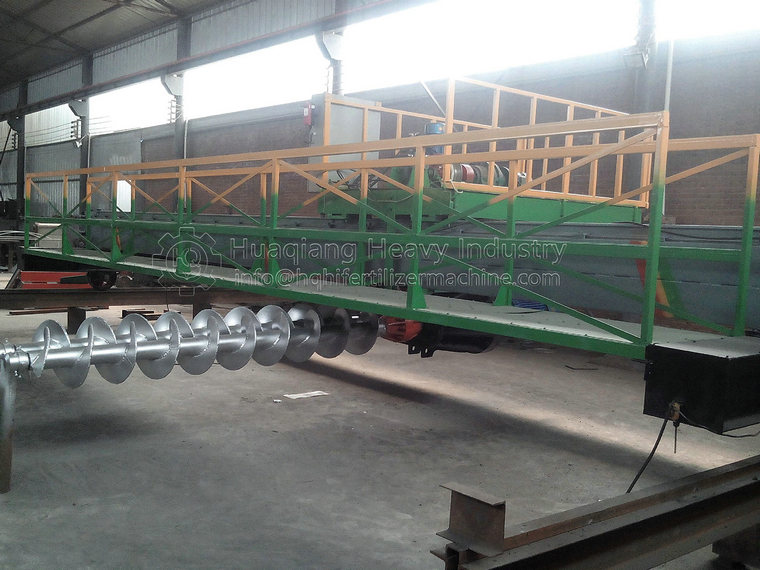Efficient and high-quality fermentation characteristics of trough type organic fertilizer turning machine
In the production process of organic fertilizers, the trough type organic fertilizer turning machine, with a series of unique fermentation characteristics, has become a key equipment trusted by many producers, effectively promoting organic fertilizer fermentation to a new height of high efficiency and quality.
The primary feature of the trough type organic fertilizer turning machine is its precise material mixing ability. It runs along a fixed fermentation tank, and during the flipping process, it can fully stir and mix materials from different levels and positions in the tank through a specially designed flipping device. The deep accumulated materials blend with the materials that come into contact with the air on the surface, allowing the fermentation agent to be evenly distributed throughout the entire material system. This is like finding suitable “soil” (organic materials) for each “seed” (fermentation agent), ensuring that the fermentation process proceeds synchronously and evenly, greatly improving the consistency of fermentation.
Good ventilation and air permeability control is also a major highlight of the trough type organic fertilizer turning machine. During the flipping operation, it can effectively break the compact structure of the material, allowing air to fully enter the interior of the material pile. Adequate oxygen supply creates excellent conditions for the growth and reproduction of aerobic microorganisms. Microorganisms can more actively decompose organic matter in aerobic environments, releasing more energy and accelerating the fermentation process. At the same time, reasonable ventilation can also regulate the temperature and humidity of the material pile, avoiding the influence of local overheating or excessive humidity on the fermentation effect and maintaining the stability of the fermentation environment.
Furthermore, the trough type organic fertilizer turning machine helps to achieve standardization and controllability of the fermentation process. Due to its operation in a fixed fermentation tank, the fermentation conditions are relatively stable and easy to monitor and adjust. Producers can accurately set parameters such as flipping frequency, depth, and speed based on different material characteristics and fermentation requirements. This precise control enables the fermentation process to proceed at the expected pace, ensuring reliable control over fermentation time and the stability of the final organic fertilizer quality.
In addition, the trough type organic fertilizer turning machine also performs well in environmental protection. Working in a closed fermentation tank reduces the spread of odors and the flying of dust, effectively reducing pollution to the surrounding environment. Moreover, through an efficient fermentation process, organic waste can be maximally converted into useful fertilizers, achieving resource recycling and aligning with the concept of green and sustainable development.
The trough type organic fertilizer turning machine plays an irreplaceable role in the field of organic fertilizer production due to its significant fermentation characteristics, providing solid support for the production of high-quality organic fertilizers.







